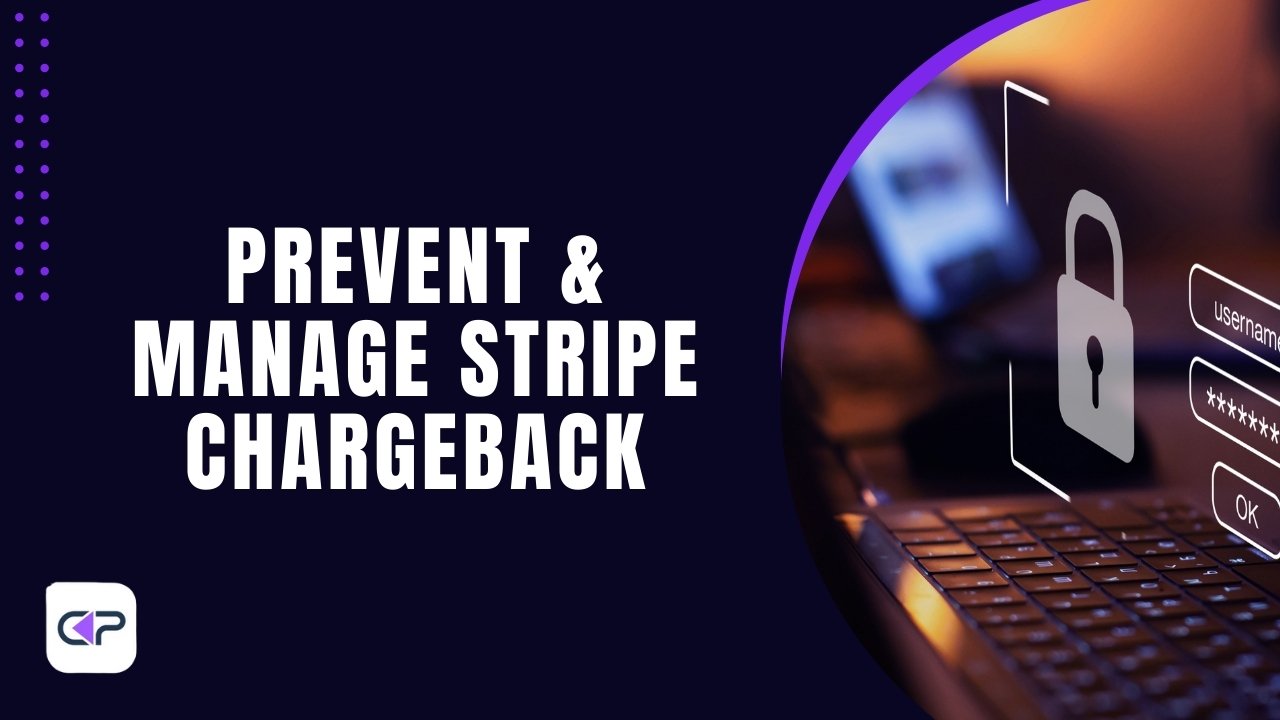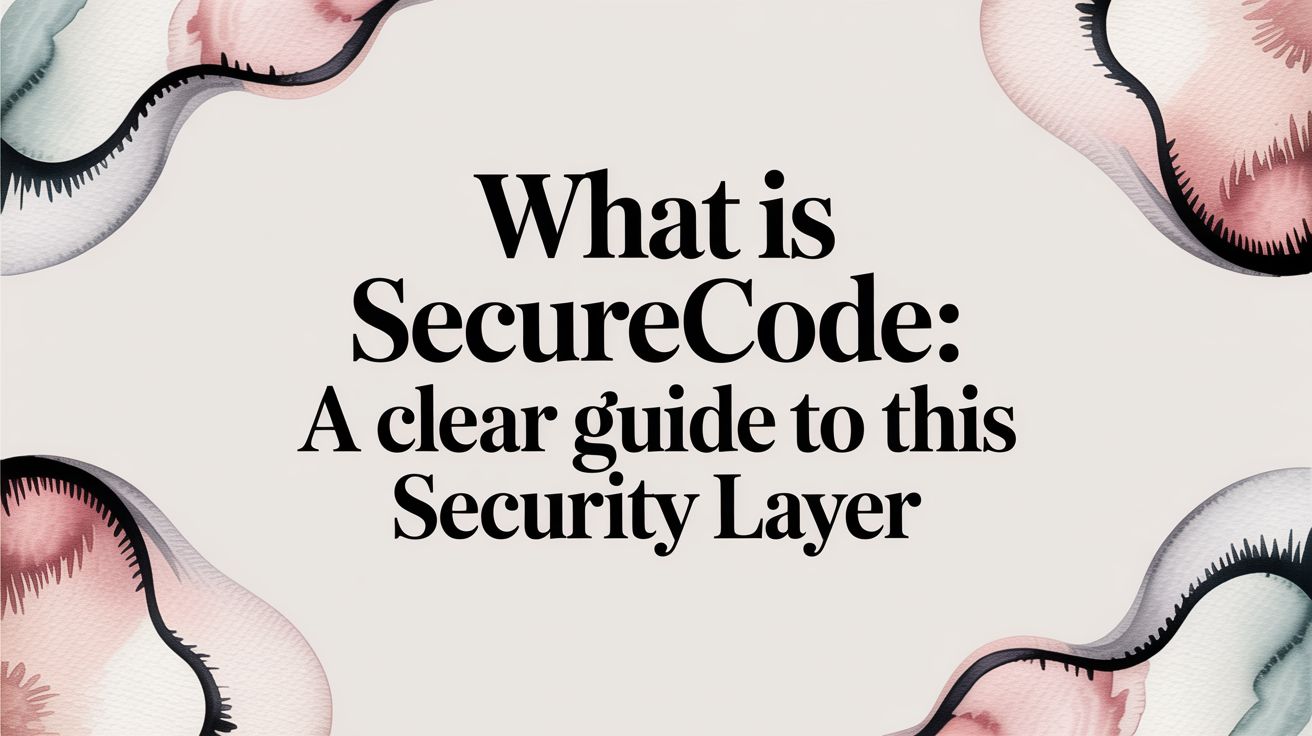
Are chargebacks eating into your revenue and disrupting your operations on Stripe?
For many merchants, disputes are more than just an inconvenience—they represent a significant financial and reputational risk. With Stripe handling millions of transactions daily, disputes and chargebacks are an unavoidable reality.
In fact, the global chargeback rate across various industries averages around 0.47%, but certain sectors like e-commerce and subscription services often experience much higher rates.
Navigating Stripe’s chargeback process requires a clear understanding of its policies, timelines, and best practices. Without proper management, disputes can lead to lost revenue, increased fees, and even account suspension.
Our guide will walk you through the essential steps to fight and win chargeback disputes, empowering you to safeguard your revenue and maintain a healthy Stripe account.
What are Stripe Chargebacks?
A Stripe chargeback happens when a cardholder (customers) disputes a charge made through Stripe, initiating a formal request with their bank to reverse the transaction. This process is triggered if a customer believes the charge was unauthorized, fraudulent, or unsatisfactory due to product or service issues.
Stripe serves as the intermediary, facilitating communication between the merchant, the card network, and the issuing bank. Once a dispute is filed, the disputed amount is temporarily deducted from the merchant’s account while evidence is reviewed.
For merchants, understanding Stripe chargebacks is critical, as excessive disputes lead to higher fees, stricter account monitoring upon tagged as high-risked, or even account termination if threshold is exceeded. Managing and preventing these chargebacks is key to protecting revenue and maintaining a healthy Stripe account.
Stripe Dispute Process & Policy in 2025
In 2025, Stripe continues to adhere to a structured dispute resolution framework designed to balance the interests of merchants, customers, and financial institutions. Understanding this process is crucial for merchants aiming to manage disputes effectively.
1. Initiation of a Dispute
A dispute, commonly known as a chargeback, begins when a cardholder questions a transaction by contacting their card issuer. This action prompts the issuer to initiate a formal dispute through the card network, resulting in the immediate reversal of the payment. Consequently, the disputed amount, along with any associated dispute fees, is deducted from the merchant's Stripe balance for the duration of the dispute.
2. Notification and Immediate Actions
Upon the initiation of a dispute, several actions occur:
- The card network debits Stripe for the disputed payment and any related fees.
- Stripe subsequently debits the merchant's balance for the disputed amount plus a dispute fee.
- The merchant is prohibited from issuing a refund outside the dispute process while the dispute remains open.
- The merchant's dispute rate with the respective card network increases. [Source: Documentation]
3. Timeframes and Deadlines
The dispute process operates within specific time constraints:
- Dispute Filing Window: Cardholders typically have up to 120 days from the original payment date to initiate a dispute. This period may extend in certain industries, such as travel or event ticketing, where services are rendered long after payment. In such cases, the timeframe starts from the event date rather than the payment date.
- Merchant Response Period: Merchants are allotted a limited window, usually between 7 to 21 days depending on the card network, to respond to the dispute by submitting evidence to the card issuer.
- Issuer Review Period: After evidence submission, the card issuer has approximately 60 to 75 days to evaluate the provided information and make a decision.
The entire dispute resolution process can span 2 to 3 months from initiation to final decision.
4. Possible Outcomes
The dispute can conclude in one of two ways:
- Dispute Overturned: If the issuer rules in favor of the merchant, the disputed amount is returned to Stripe, which then credits the merchant's account accordingly.
- Dispute Upheld: If the issuer sides with the cardholder, the funds remain with the cardholder, and the merchant absorbs the loss.
5. Dispute Fees
Stripe imposes a dispute fee for each chargeback. As of this writing, the standard fee is $15 in the U.S., though this amount may vary by region and currency. Notably, for businesses in the Single Euro Payments Area (SEPA), transactions processed on the Cartes Bancaires network do not incur a dispute fee.
6. Responding to a Dispute
Merchants have the option to challenge a dispute by submitting compelling evidence through the Stripe Dashboard or API. This evidence should refute the cardholder's claim and substantiate the legitimacy of the transaction. It's imperative to adhere to the specified deadlines, as failure to respond promptly results in an automatic loss of the dispute.
7. Unchallengeable Disputes
Certain disputes cannot be contested due to card network rules or local regulations. In such instances, Stripe immediately closes these disputes as lost upon notification. Examples include:
- Discover card inquiries that escalate without merchant evidence submission.
- Transactions processed on the Cartes Bancaires network, which, while requiring more stringent evidence from cardholders to initiate a dispute, prohibit merchants from challenging disputes once initiated.
- Disputes involving Nigerian payment methods, where local regulations prevent merchants from contesting disputes.
8. Multiple Disputes for a Single Payment
In rare scenarios, a single payment may be subject to multiple disputes. This can occur if a customer files new disputes with different reason codes or if the issuer acquires additional information about the transaction. Each dispute must be addressed individually, with careful attention to the specific details and claims associated with each case.
What are fees associated with Stripe Chargeback
Stripe chargebacks come with associated fees that merchants must account for when a dispute arises.
These fees are in place to cover administrative costs incurred during the chargeback process. Here’s an overview of the primary charges:
1. Standard Chargeback Fee
For each chargeback initiated, Stripe applies a fixed fee to the merchant’s account. This fee typically ranges between $15 and $25 per dispute but can vary depending on the country or currency used for the transaction. For instance, Single Euro Payments Area transactions processed via the Cartes Bancaires network often have different rules, sometimes exempting merchants from dispute fees.
2. Currency Conversion Fees
If a chargeback occurs for a transaction conducted in a foreign currency, merchants may face currency conversion fees. These charges arise from converting disputed amounts back to the original currency of the transaction, adding another layer of cost.
3. Bank Network Fees
Stripe operates through card networks like Visa, MasterCard, and American Express, each with its own set of rules and additional fees for chargebacks. These may be passed down to merchants indirectly, depending on their arrangement with Stripe.
4. Evidence Submission Costs (Time and Resources)
Although not a direct monetary fee, merchants should also consider the indirect cost of gathering and submitting evidence to contest a chargeback. This involves dedicating time, staff resources, and occasionally legal assistance, which can impact overall business efficiency.
5. Lost Revenue from Successful Chargebacks
If a dispute is upheld in the cardholder's favor, the merchant forfeits the entire transaction amount, leading to a loss in revenue. This loss is separate from the chargeback fee itself and can have a significant impact if disputes occur frequently.
6. High-Risk Business Penalties
Merchants operating in high-risk industries may encounter elevated chargeback fees due to the increased likelihood of disputes. Additionally, a high chargeback ratio can lead to penalties or even account suspension, which could result in further financial setbacks.
By understanding these fees and proactively managing chargebacks, merchants can mitigate potential losses, reduce disputes, and safeguard their revenue.
How to Prevent Chargebacks on Stripe with ChargePay
Chargebacks financially impact a merchant's revenue and relationship with payment processors. ChargePay offers a comprehensive solution to prevent chargebacks on Stripe by implementing advanced strategies and real-time alerts.
1. Advanced Fraud Detection
ChargePay utilizes AI-powered algorithms to analyze transaction data in real-time, identifying suspicious patterns and potential fraudulent activities before they result in chargebacks. By proactively flagging high-risk transactions, merchants take immediate action to prevent disputes.
2. Real-Time Alerts
The platform provides instant alerts for transactions that exhibit unusual behavior or match known fraud indicators. These real-time notifications enable merchants to review and address potentially problematic transactions promptly, reducing chargebacks.
3. Customized Risk Scoring
ChargePay assigns risk scores to individual transactions based on various parameters, including transaction history, user behavior, and device information.
Merchants will customize these risk scoring models to align with their specific business requirements, allowing them to focus on high-risk transactions that may require additional verification.
4. Automated Dispute Management
In addition to prevention, ChargePay streamlines the dispute resolution process by automating evidence gathering and submission.
This efficiency not only aids in managing existing disputes but also helps in identifying patterns that could lead to future chargebacks, allowing merchants to adjust their fraud prevention strategies accordingly.
5. Continuous Learning and Adaptation
The AI-driven system continuously learns from new data and feedback, refining its algorithms to adapt to evolving fraud patterns. This ensures that merchants are equipped with up-to-date tools and strategies to prevent chargebacks effectively.
By integrating ChargePay with Stripe, merchants can enhance their fraud detection capabilities, receive timely alerts, and implement proactive measures to prevent chargebacks, thereby safeguarding their revenue and maintaining a healthy payment processing environment.
Manage Stripe Chargebacks With ChargePay
ChargePay simplifies Stripe chargeback management by automating key aspects of the dispute process, allowing businesses to respond efficiently and minimize revenue losses.
Its AI-powered platform streamlines workflows, automates evidence collection, and generates compelling response templates for submitting disputes to card networks.
This reduces manual intervention and ensures that all required documentation is prepared and submitted accurately, increasing the likelihood of successfully resolving disputes.
The platform also offers real-time tracking and actionable insights to help businesses monitor the status of ongoing chargebacks. By analyzing dispute trends and identifying root causes, ChargePay enables merchants to implement targeted strategies to reduce future occurrences.
With its seamless integration into Stripe and proactive customer support, ChargePay equips businesses with the tools to handle chargebacks effectively while maintaining a strong focus on operational efficiency and revenue protection.







.svg)







.svg)
.svg)
.svg)